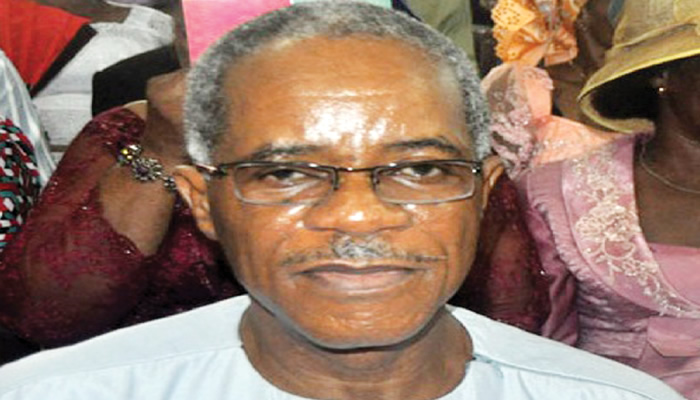
The President of Bank Customers Association of Nigeria, Dr Uju Ogunbunka, in an interview with DEBORAH DAN-AWOH speaks on how the naira crisis has taken a toll on Nigerians and commercial banks ahead of the forthcoming general elections
What do you think is the solution to the crisis that has characterised the naira redesign?
I think that the greatest problem we have with the naira swap is that we do not have enough of the new currency notes in circulation. Even if we have, it appears it is not coming out.
People do not have the new naira notes and after depositing their old naira in the banks, they are left with nothing. So, the solution is to make the new notes available and since they have agreed to push the N200 notes back into the market. They should also make that available. Although this is outside what the judiciary has pronounced, as it asked us to continue with the old naira notes until they take a position on the case before them. This would have been the easiest and most practicable way to go about it, that is, continuing with old naira notes till a decision is taken. Since that is not what is happening, the CBN should ensure the new naira notes are well circulated. That will sort out the problem.
The CBN recently introduced the National domestic card scheme. What impact would this have on Nigerians?
If the end goal will ensure that transactions are faster and freer or help reduce too much money in circulation, then that will be helpful, depending on the number of people in the position to use it. You have to make sure some of these things have permeated the economy for the impact to be properly felt. If it is just a few people or places having access to the card then the impact will not be felt.
The scarcity of redesigned notes has made banks drastically limit daily withdrawals. What is your association doing to get banks to address the challenges customers have been going through regarding the naira swap?
There has been a blame game over who is responsible. CBN will say they have given banks money. Banks will say they do not have the money and we are not in a position to enter their vaults to vet their claims.
I will be surprised if any bank has the new naira notes and it is refusing to give them out to the customers. It means that the banks do not value their customers. Because if customers are pressing for it and you are not giving them, then who are they keeping the money for?
So, the argument or the burden of the confirmation in regards to who has the money lies with the CBN. The CBN should make the banks accountable by plainly saying, “We have given banks money, what they have done with it we do not know.” And prove it. It is not enough to say it, the CBN has to prove that it dispensed the monies.
Then the populace can tell the banks that the CBN has said they have given you money, but you are not disbursing the money to us. My opinion is that the banks may have been given the new naira notes and disbursed it to only a few rather than making them available to a cross-section of customers. As I said, my argument is that banks should have no reason not to give out the new notes, except they are being unprofessional and unethical by selling the money to the highest bidder. If they are being ethical and professional, I do not see them in possession of the new naira notes and then hoarding them from the public. The worst the banks can do is to ration the money so that it goes around. This will be justified.
The CBN claimed the redesign of the currency and cash limit would promote financial inclusion. To what extent can this be achieved?
If they are well managed, we can achieve that but the trail of recent activities has reduced such possibilities. Because all that this policy has done is create fear in the system. And the little confidence that customers have in the financial system of the country has been eroded. Currently, if you ask a non-customer of a bank to open an account and save his money in the financial institution, they will be afraid. He will be jostled with the thoughts of whether keeping money in the bank will guarantee the safety of his finances. Will he get his money when he needs it? So, we only introduced a lack of confidence in the system. But if it had been properly managed, at least by allowing customers to get enough money to cater for their basic needs, which could have helped. But in my opinion, this move will drive even existing customers to source for alternatives for saving their money because they are uncertain about when things will crop up again and affect their financial day-to-day activities.
So, financial inclusion will not progress just by redesigning the naira and limiting the amount of cash. In fact, limiting the amount is a problem on its own. Imagine, I have N20,000 in my account, I need to pay somebody and I cannot access that money to pay. What are you telling me? And then you think I will encourage someone else to keep his money in the bank? Impossible!
I do not think the premise is right. What they should have done is to ensure enough new naira notes and leave people to make whatever decision they want with their money. As long as they do not abuse it.
There have been increased complaints about failed transactions and missing funds by bank customers. What has your association done to ensure banks address these challenges?
You know the banks do not provide network services. Based on what we found out, there was a failure in the network system. And there was so much pressure.
Everyone came to the bank to do one thing or the other, whether it was necessary or unnecessary. Because people were trying to meet the redesigned naira notes deadline, the pressure became too much. Unfortunately, some of these systems are still being built. They are not as strong. And you do not expect a miracle to happen. These are man-made issues. We heard the collapse of the network was not essentially the problem of the banks. It was just that it manifested in the banking sector. Even those of us who are not working in the bank also witnessed the network problem with our phones.
I will not agree that it was the problem of the banks. It just manifested within that framework. It manifested in various other places because the eyes of the public were on the banking system which is why we noticed it very prominently.
In the case of missing funds, it is still about the network. I would not say all of it but most of the cases of missing funds has to do with the malfunctioning of the network. If I am transferring money, even those days, when we were using the post office and telegram and there was an interruption in that system, that money will not get there the same day and time you expected it to get there. Sometimes, the money goes missing not because someone has taken it but because it was stuck somewhere. And if it was tracked, you can still find it. Sometimes, it becomes an issue of some people trying to manipulate the system and, thereby, committing fraud. We have many fraud experts in this country, and unfortunately, no matter how you try to build the system, they still find a way to work against system.
That is why when you look at the reports of the CBN, NDIC and even the banks, you will see quite a number of fraudulent activities in the financial service industry. Some people have dedicated their lives to continue to find loopholes they can take advantage of. Which is very unfortunate. Many of the people that do not have jobs decided to go into all these unhealthy practices that are subjecting others to trouble and headaches, which is pathetic. I believe this is part of the missing fund element. However, the majority of these missing funds were caused by failed transactions, which can be recoverable. And quite a number of them have been recovered to the best of my knowledge.
Customers lament the numerous charges on accounts. What is your opinion on this?
Charges have always been a factor. It is not about numerous charges. It is about excess charges. The charges that are supposed to be in the system are very well known. And they have been captured in the guide to charges by banks, which was issued by the CBN. The guide itemised the various types of charges that can accrue to banks and the percentage or amount that they can charge per transaction or group of transactions. Unfortunately, some of the banks have been found to charge more than what has been stipulated in the guide.
Either deliberately or mistakenly, sometimes we find out that some of the bank personnel lack sufficient training. The banks keep hiring new hands. They have some challenges coping with the job and thus mess around with charges. Sometimes it is due to the malfunctioning of the bank equipment. But the majority is a deliberate action and then we have customers complain. We thank God various arrangements have been put in place to recover excess charges whenever they happen.
The customers of banks need to be aware of this and that is part of the job we do, creating awareness. Part of what we do as an association is to explain to customers when there is a need. We run seminars, summits and workshops to enlighten our members on good and bad situations and how to navigate them responsibly.
Do you think the naira redesign can stop vote buying by politicians?
It depends on the number of votes somebody wants to buy. If I want to buy just one vote, it would not stop me. If I want to even buy 100 votes, it would not stop me too. Then, the question is, is there enough money to buy millions of votes? And from what we have now, except somebody amassed the money earlier than some of us are aware of, the current situation where we do not even have access to cash can really frustrate anyone who wants to buy votes.





